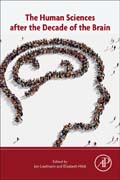
The Human Sciences after the Decade of the Brain surveys the mutual interactions between cognitive neuroscience and the social sciences and humanities, also investigating the methodological and conceptual prospects and perils of choosing a neuroscience approach to these disciplines. The book sheds light on a broad range of epistemological, historical, and sociological questions regarding the neuro-turn of the new millennium. The book's first section focuses on epistemological questions posed by neurobiologically informed approaches to these areas. The second section investigates neuroscience's influence on explanations for social and moral behavior and examines how the biological and psychological conditions set by the brain structures implicated in moral agency set constraints for explanations of individual and social behavior and moral theory. The final part critically explores the consequences of the neuro-turn in diverse disciplines of the social sciences and humanities and how cognitive neuroscience affects, and is affected by, such fields as economics, marketing, education, and ethical theory. This interdisciplinary investigation will be an informative and fascinating reference for neuroscientists, cognitive scientists, and biological psychologists interested in the philosophical, ethical, legal, and societal influences of, and on, their work. Explores the recent influence of neurobiology on the humanities and social sciences and how they respond to neuroscience influencesOffers in-depth analysis of the theoretical and practical influence of a brain-centered scientific view in diverse areas of the social sciences, including economics, education, cultural studies, and philosophyInvestigates contributions of the history of science Scrutinizes current cognitive science-based approaches to social and moral behavior INDICE: Part 1: Prospects and limitations of neuroscience research in the humanities and social sciences 1. Neurophilosophy or philosophy of neuroscience. What neuroscience and philosophy can and can't do for each other 2. How relevant is neuroscience to philosophy of mind? 3. Who is afraid of the Big Bad Neurosciences? Some considerations on neurosciences' impact on the notions of self, free will and moral responsibility 4. Free will between philosophy and neuroscience. A platform for interdisciplinary dialogue 5. Histories of the brain. Towards a critical interaction of the humanities and the neurosciences Part II: The neurosciences of social sciences and ethics 6. The Theory of Brain-Sign: A New Model of Brain Operation 7. Whatever happened to social agents? An empirical approach to the traditional 'Structure Vs. Agency' debate 8. Five ways of 'neuralizing' psychology 9. The neuroscience of ethics beyond the is/ought orthodoxy: The dual-process theory of moral judgment example Part III: The neurosciences in society. Social, cultural and ethical implications of the neuro-turn 10. The neural net as paradigm for human self-understanding 11. Brain. Art. Salvation 12. A mind plague on both your houses: Imagining the impacts of the neuro-turn on the neurosciences 13. Being a good external prefrontal lobe. Parenting teenage brains 14. Towards a Neuroscience Literacy? - Theoretical and Practical Considerations 15. STRANGERS IN NEUROSCIENTIFIC RESEARCH: External insiders as advisors for ethical, legal, social, and philosophical aspects of the Human Brain Project 16. Hope and fear after the Decade of the Brain: What discourse analysis of mainstream media can tell about the neuro-turn
- ISBN: 978-0-12-804205-2
- Editorial: Academic Press
- Encuadernacion: Rústica
- Páginas: 348
- Fecha Publicación: 01/03/2017
- Nº Volúmenes: 1
- Idioma: Inglés
